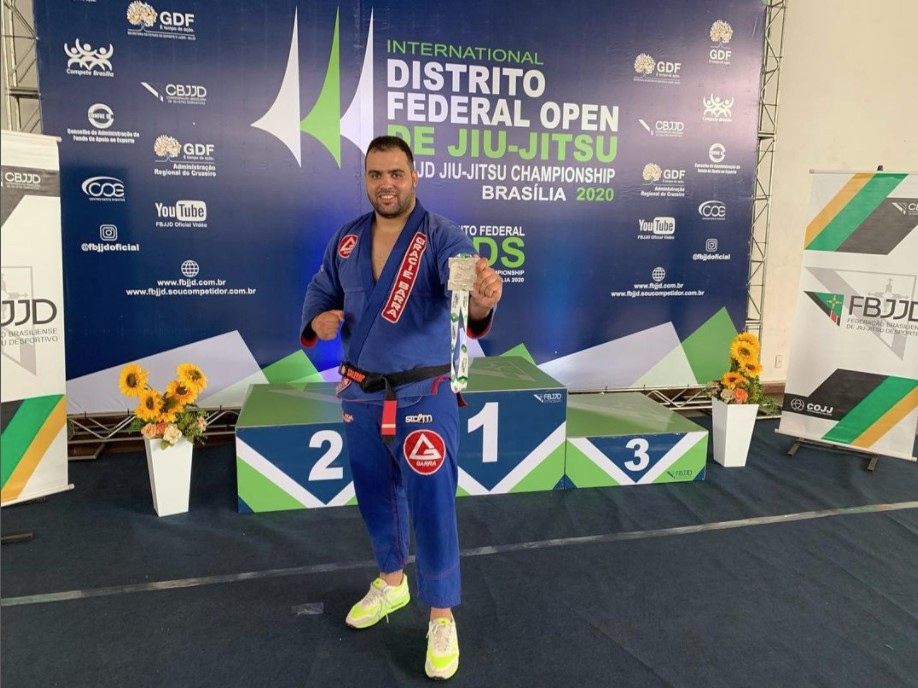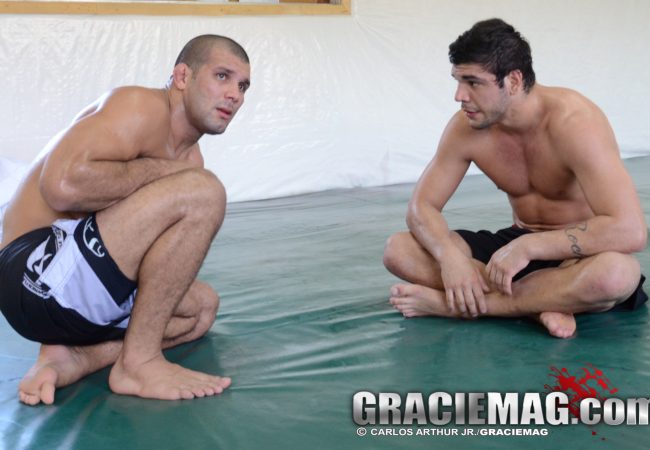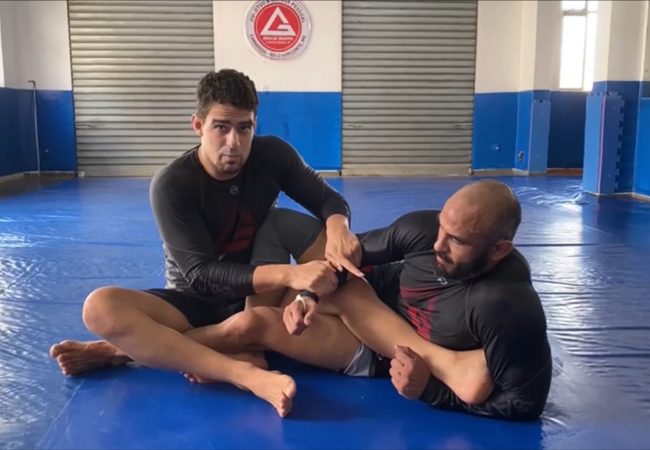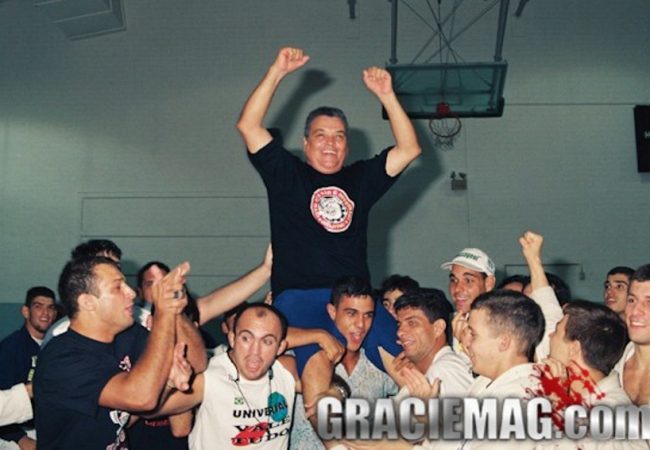
Marcus Salerno is a BJJ black belt
During his youth, around the age of 16, Marcus Salerno was a constant target of bullying and jokes for being bigger than his peers. One day, his geography teacher had to break up a fight between Marcus and his colleagues, which ended up making him “furious” and in an emotional act Marcus tried to challenge his own teacher.
His teacher Leonardo Silveira had to use Jiu-Jitsu to restrain a young Marcus, who was nervous and angry for having avoided a fight with his classmates.
“It was in the heat of the moment that I tried to face my own teacher and who is now my friend, Leonardo Silveira. He used Jiu-Jitsu techniques to stop me and calm me down, because I was upset with his act of breaking up the supposed fight between me and my classmates. After that, I asked him what he had done to me. Leonardo just told me to buy a gi and he would teach me Jiu-Jitsu. He was a purple belt at the time,” recalls Marcus, who after three months of training was advised to train at Gracie Barra Valparaiso, led by Professor Pieze, where he ended up traveling his entire road to the black belt. Helton Nogueira, also a black belt, is Marcus’s mentor to this day, where he helps him in various matters about Jiu-Jitsu.
His classmates involved in that mess also became great friends, who also had the opportunity to enter the world of Jiu-Jitsu. It is worth mentioning that one of them ended up becoming a black belt within a few months of Marcus. It’s an example of how Jiu-Jitsu works as a personal development tool.
“Guilherme and Adriano, who were in that little kerfuffle at school, are like brothers to me today. Adriano started training six months after the incident and also became a black belt. BJJ strengthened our friendship, brought us closer and we became brothers. The sport acts as a personal development tool. I learned to be brave, to face my own desires and to be very patient. I’m a better person today because of Jiu-Jitsu,” says Marcus, who has been training for 14 years.
With a black belt around his waist since 2016, Marcus has been a medal hunter on the competitive circuit of the International Brazilian Jiu-Jitsu Federation (IBJJF), where he has already accumulated important medals in major tournaments.
“Competing brings us a lot of cool experiences. You have more control over yourself, you understand your body and mind better. It is above all a study of self-knowledge. You end up realizing your limits and, many times, you realize that you were wrong when you said that ‘you could only make it that far.’ Competition shows that you can go further, competing in Jiu-Jitsu completely transforms your life. Even when you lose, you learn, you evolve. In some cases, a defeat brings a very high level of emotional maturity. You see value in all things,” reflects the Gracie Barra champion.
Currently spending a season in the United States to compete, Marcus takes the opportunity to analyze the differences between Brazil and US in terms of training. In his view, Americans are more adept apart from the methodology.
“I would say that in Brazil we are more creative when it comes to fights and here, in the U.S., people follow the step-by-step method. I’m blessed to have many close friends at a high level in Jiu-Jitsu. It is, without a doubt, an incredible experience. Since here people give immense value and appreciation to your Jiu-Jitsu. They can understand the value of being an expert in your profession and, as an athlete, the value they place on us here is immense. This motivates me to continue following the path of competitions,” concludes Marcus.




